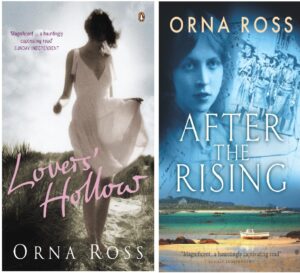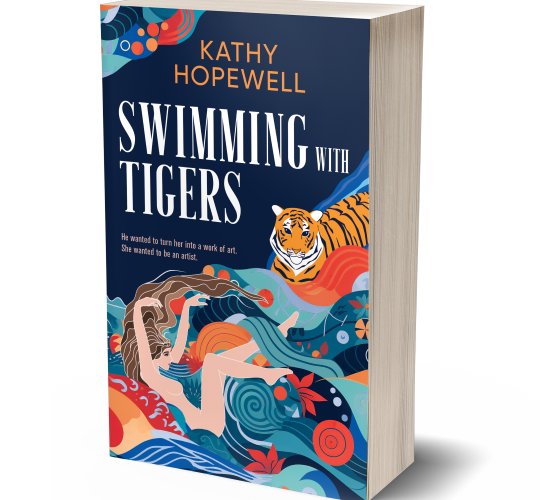It has always been my dream to see my name on the cover of a novel published by one of the big publishing houses such as Penguin, Bloomsbury or Picador. For 10 years I was motivated by this dream to revise my novel, submit it, and then revise and submit it again. Finally, after sending out my novel over 50 times, I had to decide whether to throw it away or publish it myself.
When I first began submitting to agents and publishers, the whole idea of self-publishing was very much looked down upon. It is still less prestigious to self-publish, but the stigma of failure and the taint of ‘vanity’ publishing (which is not at all the same as self-publishing), has gone.
After years of trying to get my novel published traditionally, the choice was clear: give up on my novel, or catch up with the new reality of self-publishing. I soon found that, by and large, independent (‘indie’) authors seemed as happy as their mainstream-published peers.
Persistence as a habit
My early experiences of submitting to agents and publishers were painful. Like any new author I thought that, having achieved the massive task of writing a full-length novel, the world owed me a publishing contract!
But I soon found that getting a deal was a form of gambling in which market trends, individual agents’ tastes, timing, and any number of other random elements had to come together along with a strong, well-written manuscript. Also, I hadn’t really cottoned on to the fact that an agent was unlikely to consider any author who didn’t have a ready-made online readership.

Submission packages take a lot of work. You need to research the target, polish the extract to within a comma of its life, draft and redraft the query letter by reading it in several different states of mind and keep your PC files in perfect order to avoid sending an old version by mistake. After checking and rechecking that you’re sending exactly what was asked for, right down to the punctuation in the file name, you can move on to the next submission and bemoan the loss of another writing session to an activity that is a waste of effort 99% of the time.
I got encouragement in the form of three long-listings in international competitions plus occasional feedback from editors at small presses and began to see my mounting rejections as an honourable badge of persistence and evidence of being a serious writer, albeit as yet unpublished.
A question of identity
And here we come to the nub of the issue: I was seeking validation by this very discouraging process. To be traditionally published would, I believed, bestow the identity of ‘real writer’ upon me. But, as I learned more about the publishing world, this naive view took some knocks. For instance, a friend was offered a deal in which she would have to produce three 100,000-word novels a year which, she said, would mean she couldn’t even take Christmas Day as a holiday.
Gradually, I realised that publishing was almost entirely a commercial enterprise in which the key beneficiary was the publisher, not the author. Furthermore, as someone who is not a keen traveller, I eyed the book-tour schedules of top authors with dread, and distressing stories about mid-list authors being dumped in favour of shiny new, more marketable, debut authors made me shudder.

Around this time, I left my job in academia and set up some creative writing classes at a local café. It was a revelation! I jettisoned all the stress of working for a large organisation but retained the joy of teaching. The significance of this discovery was that I could call myself a teacher without the university or any official body validating this identity.
Coincidentally, this was happening when I began to think seriously about ‘going indie’. What if self-publishing was as free, fun and lucrative in comparison to traditional publishing as my café teaching was in comparison to the nightmares of red tape, short contracts and departmental cuts at the university?
Good and bad
I started to look more closely at self-publishing. Podcasts by Sasha Black (The Rebel Author), Joanna Penn and Caroline Donahue on The Secret Library all reported good experiences. The most persuasive story came from Orna Ross, founder of the self-publishing professional body ALLi (the Alliance of Independent Authors).
Ross was so badly served by a mainstream publisher that she took back the rights to her novel and self-published it instead. She has never looked back. In Ross’s case, it was a poor understanding of the genre and aim of the book: her literary novel about the Easter Rising in Ireland was marketed as a commercial women’s romance.

This lack of control over the way one’s novel is marketed is endemic to mainstream publishing. My novel is in a similar territory to Orna Ross’s, being a historically-based account of overshadowed women, and I began to revise my earlier, idealised view that a contract with big publisher was the ultimate prize.
With self-publishing it is all up to you: the way you want to market your book, the cover design, the editor you choose, the type of launch, the social media or real-life appearances to promote it. That’s the good news. Ironically, the good news is also the bad news: it’s all up to you. It’s terrifically hard work and relies on a high level of self-belief.
So have I finally woken up from my dream of being traditionally published? Almost! I am hoping that self-publishing isn’t giving up, but instead will mean stepping into an arena where I am in control of my writing life and identity.
Maybe that was the dream all along?
(a version of this article appeared on Medium last year)


Comments